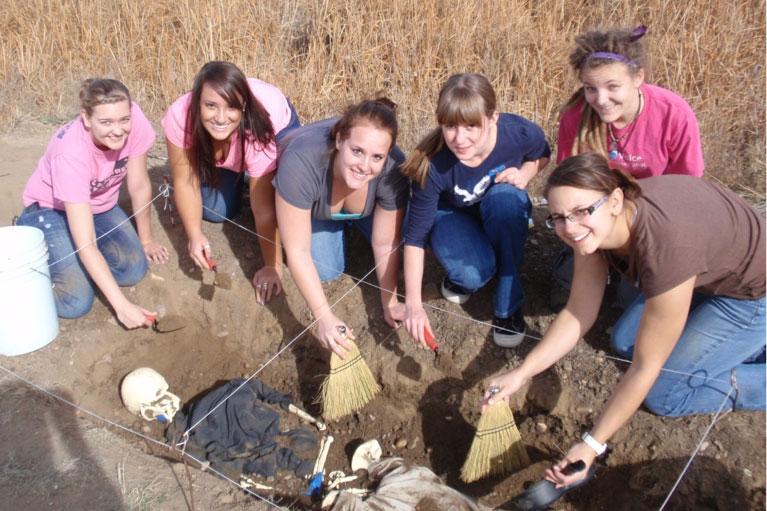Forensic Anthropology
The Forensic Anthropology course at UNC (ANT 330) is an applied course where students learn to analyze human skeletons resulting from unexplained deaths. In this course, students learn about human skeletal and dental anatomy, skeletal and dental growth and development, trauma analysis, and applications of these techniques to legal contexts. Specifically, they learn to recreate the biological profile by identifying age, sex, stature, and ancestry in skeletal individuals. They also participate in a mock forensic excavation and a mock trial.
There are many opportunities at UNC for students to work with human skeletons outside of class. UNC students have done internships at the Weld County Coroner’s Office where they helped analyze skeletons from real forensic cases. They have also traveled to Boulder, Colorado to examine the Nubian skeletal collection housed at CU. Finally, forensic anthropology students have gone with Dr. Kyle to Albania, Italy and Greece to examine skeletons from ancient Greek colonies and mother-cities.
Professor Britney Kyle gives her students hands on experience in her Forensic Anthropology course.
Take a look at what a Mock Forensic Anthropology Investigation looks like here.


